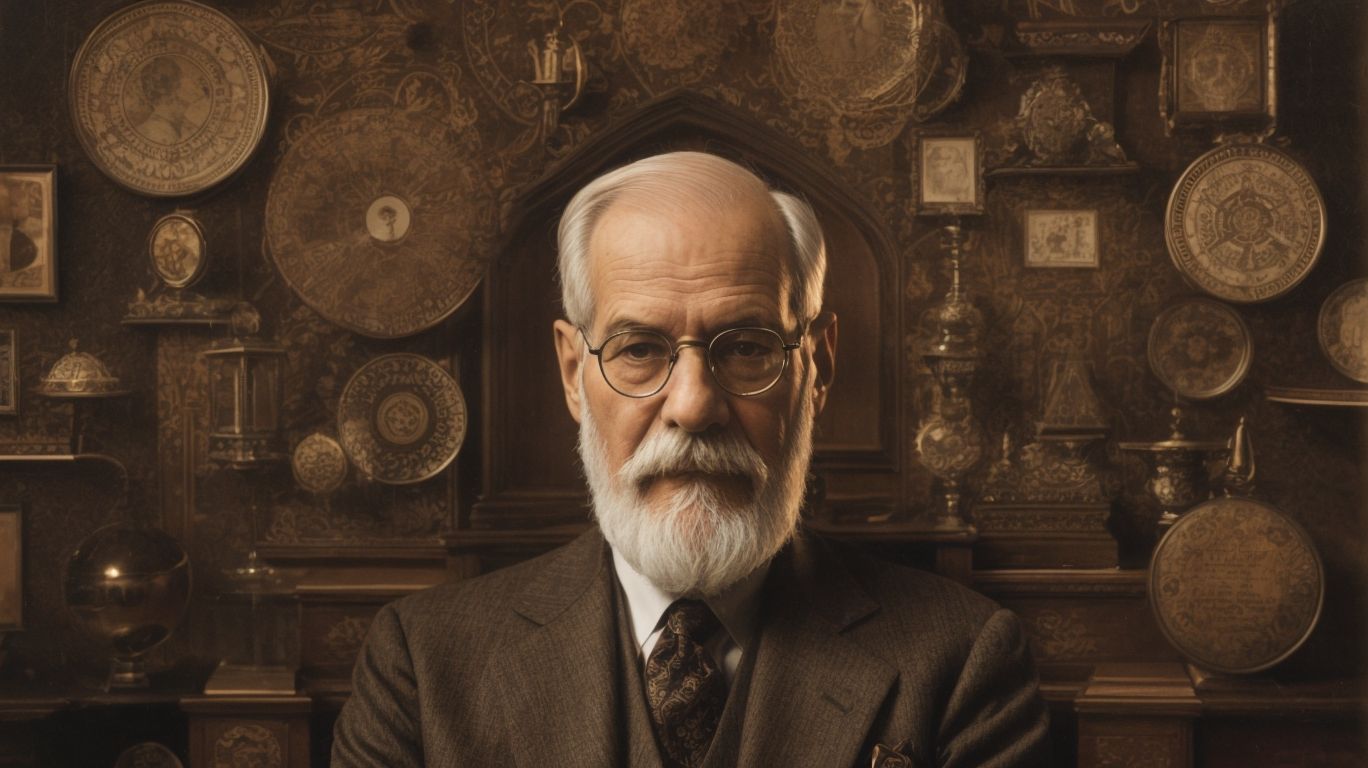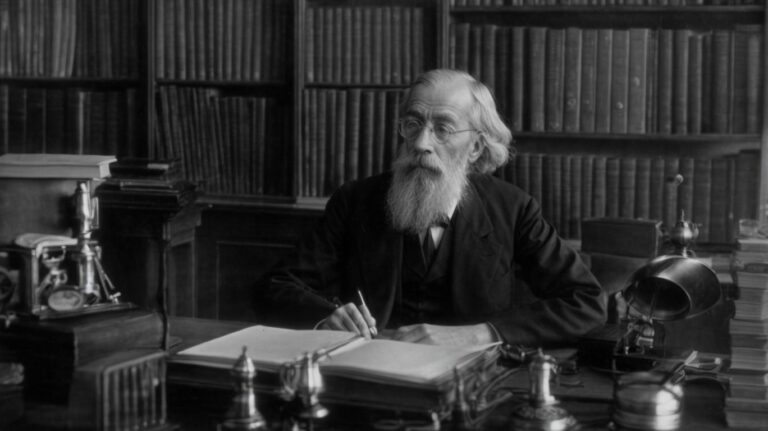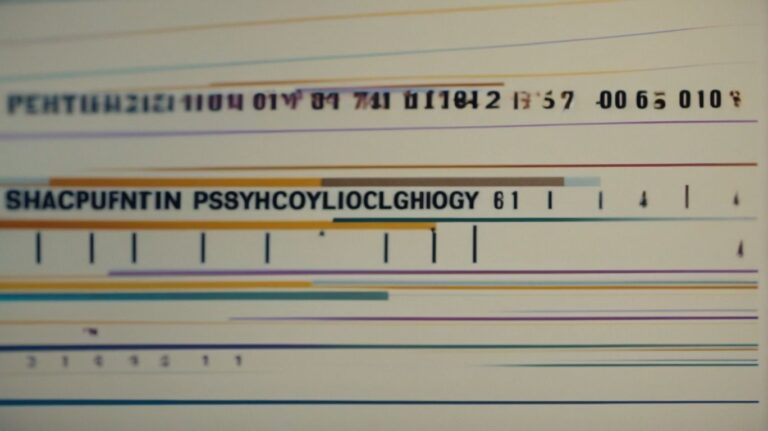Sigmund Freud is a name synonymous with the field of psychology, known for his groundbreaking theories on the human mind and behavior. In this article, we will explore Freud’s Theory of Psychoanalysis, including the three parts of the mind according to Freud.
We will delve into key concepts such as the unconscious mind, the role of childhood experiences, and defense mechanisms. We will discuss how Freud’s ideas have shaped therapy techniques and our understanding of human behavior, as well as examine some examples of his influence in modern psychology, such as the Oedipus Complex and the use of dreams in psychoanalysis.
Join us on this journey to uncover the lasting impact of Freud on the field of psychology.
Contents
- 1 Who is Sigmund Freud?
- 2 What is Freud’s Theory of Psychoanalysis?
- 3 What are the Key Concepts of Freud’s Theory?
- 4 How Did Freud’s Ideas Impact the Field of Psychology?
- 5 What Are Some Key Examples of Freud’s Influence in Modern Psychology?
- 6 Frequently Asked Questions
- 6.1 What is the overall impact of Freud on psychology?
- 6.2 How did Freud’s work contribute to the development of psychology as a profession?
- 6.3 What are some key ideas and concepts that Freud is known for in psychology?
- 6.4 How did Freud’s theories impact the treatment of mental health issues?
- 6.5 In what ways did Freud’s ideas challenge traditional beliefs and norms in society?
- 6.6 What is the lasting legacy of Freud’s impact on psychology today?
Who is Sigmund Freud?
Sigmund Freud, a renowned neurologist, is widely regarded as the father of psychoanalysis, a revolutionary theory that delves into the complexities of the human mind and behavior.
His groundbreaking work gave birth to a new field of psychology, emphasizing the significance of unconscious motives and childhood experiences in shaping one’s personality.
Freud introduced iconic concepts such as the id, ego, and superego, forming the basis for understanding the conflicts that reside in the human psyche.
Through his clinical observations and interpretation of dreams, Freud fundamentally altered the way in which we perceive mental health and psychological disorders.
What is Freud’s Theory of Psychoanalysis?
Freud’s theory of psychoanalysis is a comprehensive framework that explores the intricate interplay between the conscious and unconscious mind, shedding light on the underlying forces that shape human behavior and personality.
By diving into the unconscious mind, Freud highlighted how deeply rooted memories, desires, and emotions influence our thoughts and actions, often without our conscious awareness. According to his theory, these unconscious elements can lead to psychological conflicts and repression, manifesting in various ways in our behavior.
A central tenet of Freud’s psychoanalytic theory is the significant impact of childhood experiences on one’s development and personality formation. He believed that early experiences, particularly interactions with parents and caregivers, lay the foundation for an individual’s adult life and relationships.
What are the Three Parts of the Mind According to Freud?
According to Freud, the mind consists of three distinct components: the id, ego, and superego, each playing a crucial role in governing human behavior and psychological functioning.
The id represents the primal, instinctual desires and operates on the pleasure principle, seeking immediate gratification without considering consequences. In contrast, the ego mediates between the id’s impulses, the superego’s moral standards, and external reality by employing rationality and logic.
The superego acts as the moral conscience, internalizing societal norms and values, influencing behavior through guilt and shame.
These three elements engage in constant interaction and conflict, with the ego striving to balance the demands of the id and superego to maintain psychological equilibrium.
What are the Key Concepts of Freud’s Theory?
Freud’s theory encompasses key concepts such as psychosexual development, dream analysis, and defense mechanisms, offering profound insights into the complexities of human psychology and behavior.
Psychosexual development, a foundational aspect of Freud’s theory, posits that individuals progress through distinct stages characterized by the erogenous zones that play a crucial role in personality formation.
Dream analysis, another core tenet, suggests that dreams serve as a gateway to the unconscious mind, revealing hidden desires, fears, and unresolved conflicts.
Defense mechanisms, like repression and projection, are mechanisms used by the ego to protect the individual from anxiety and maintain psychological balance.
The Unconscious Mind
The unconscious mind, according to Freud, plays a pivotal role in shaping an individual’s personality and behaviors, harboring hidden desires, fears, and memories that influence conscious thoughts and actions.
Freud believed that early childhood experiences greatly impact the development of the unconscious mind, with memories repressed from early traumas resurfacing in various ways later in life. These repressed memories and conflicts can lead to psychological disorders, such as anxiety and depression. Psychoanalysis, a therapeutic method developed by Freud, aims to bring these unconscious conflicts to the surface to achieve resolution and psychological healing.
The Role of Childhood Experiences
Childhood experiences, as emphasized by Freud, play a critical role in shaping an individual’s psychological development, influencing personality traits, attitudes, and behaviors into adulthood.
The provided text is already formatted with HTML tags.
Defense Mechanisms
Freud proposed the concept of defense mechanisms as psychological strategies employed by individuals to cope with anxiety, conflicts, and internal struggles, often leading to the manifestation of neuroses.
These mechanisms serve as unconscious tactics that individuals instinctively use to protect themselves from distressing emotions or thoughts.
- Repression involves pushing threatening or unacceptable desires or memories into the unconscious mind.
- Denial is the refusal to acknowledge painful realities.
- On the other hand, projection occurs when one attributes their undesirable feelings onto others, creating a sense of relief by externalizing internal conflicts.
How Did Freud’s Ideas Impact the Field of Psychology?
Freud’s groundbreaking ideas revolutionized the field of psychology, paving the way for innovative therapy techniques and transforming the understanding of patients’ mental health and behavior.
His concepts delved deep into the intricacies of the human mind, emphasizing the significance of unconscious thoughts and early life experiences.
Psychoanalysis, the therapeutic approach derived from Freud’s work, opened new avenues for exploring the roots of psychological issues and providing individuals with long-lasting solutions.
Freud’s emphasis on self-awareness and introspection laid the foundation for modern therapeutic practices, encouraging individuals to explore their thoughts and emotions in a safe and supportive environment.
Influence on Therapy Techniques
Freud’s influence on therapy techniques extended beyond his time, inspiring practitioners like Jung to develop innovative approaches in addressing neuroses and psychological disorders.
One of Freud’s most groundbreaking contributions was the development of psychoanalytic techniques that emphasized the role of unconscious thoughts and childhood experiences in shaping behavior and mental health. This shift in focus laid the foundation for modern therapy practices, moving away from purely behavioral approaches towards deeper exploration of individuals’ inner worlds. Jung, a prominent figure in the field, built upon Freud’s ideas, expanding the concept of the unconscious mind and introducing concepts like archetypes and the collective unconscious that influenced therapeutic interventions.
Impact on Understanding Human Behavior
Freud’s insights into human behavior and the subconscious mind have influenced generations of psychologists and led to the development of theories like the Freudian slip, shedding light on unconscious motivations and behaviors.
Freud’s groundbreaking work delved into the intricate complexities of the human mind, proposing that our actions are influenced by unconscious desires and conflicts. His emphasis on the importance of childhood experiences in shaping adult personality revolutionized the field of psychology.
The Freudian slip concept, a key aspect of Freudian theory, suggests that seemingly innocent slips of the tongue can reveal hidden thoughts and motives that the individual may not even be aware of consciously.
This notion opened up new avenues for understanding human communication and behavior, emphasizing the role of the unconscious in everyday interactions.
Controversies and Criticisms
Freud’s work has sparked controversies and criticisms in the field of psychology, particularly regarding his concepts of defense mechanisms and the application of Freudian psychology in modern contexts.
One of the main criticisms of Freud’s defense mechanisms, such as repression and projection, is that they lack empirical evidence and are considered difficult to measure objectively.
Some argue that Freudian psychology places too much emphasis on unconscious desires and early childhood experiences, neglecting other important factors in human behavior.
Despite these criticisms, Freud’s influence on the field of psychology cannot be understated; his work paved the way for exploring the complexity of the human mind and the importance of unconscious processes.
What Are Some Key Examples of Freud’s Influence in Modern Psychology?
Freud’s influence in modern psychology is evident through concepts like the Oedipus Complex and the continued practice of dream analysis, showcasing the enduring impact of his theories on contemporary psychological frameworks.
One of the key concepts that Freud introduced is the Oedipus Complex, a controversial theory that suggests a child’s desire for the opposite-sex parent and rivalry with the same-sex parent plays a significant role in development. This idea continues to provoke discussion and exploration within psychology, influencing how we understand relationships and identity formation.
Along with the Oedipus Complex, Freud’s emphasis on dream analysis has paved the way for the ongoing use of this technique in therapeutic settings. The interpretation of dreams, as Freud suggested, offers insight into unconscious desires and conflicts, guiding modern therapists in uncovering hidden motivations and psychological issues.
The Oedipus Complex
The Oedipus Complex, a cornerstone of Freud’s theory, explores the intricate dynamics of sexuality and familial relationships, illustrating the enduring relevance of Freudian concepts in contemporary psychological analysis.
Named after the Greek mythological figure Oedipus, this complex delves into the subconscious desires and conflicts that influence an individual’s development. It centers around the child’s unconscious attraction towards the parent of the opposite sex and feelings of rivalry towards the same-sex parent, highlighting the intricacies of family dynamics.
- Freud emphasized that this unconscious conflict shapes personality and behavior, impacting relationships and attitudes towards authority figures throughout one’s life.
The Oedipus Complex is not limited to children but continues to shape adult interpersonal connections and self-perception.
The Role of Dreams in Psychoanalysis
Dream analysis, a practice pioneered by Freud, continues to play a vital role in psychoanalytic therapy, offering insights into the workings of the unconscious mind and hidden desires of individuals.
In Freud’s approach, he believed that dreams are the royal road to the unconscious, serving as a gateway to understanding repressed thoughts and emotions. By analyzing dream content, such as symbols, motifs, and recurring themes, psychoanalysts can uncover deeper meanings that may reveal unresolved conflicts or desires. These symbolic meanings often point towards unconscious motivations and psychological complexities that influence behavior and emotions in waking life.
Through the exploration of dreams, individuals can gain valuable self-awareness and achieve personal growth by addressing underlying issues and gaining a better understanding of their innermost thoughts and feelings.
The Use of Free Association in Therapy
The technique of free association, pioneered by Freud, remains a cornerstone of psychoanalytic therapy, enabling patients to explore their unconscious thoughts and emotions in a non-judgmental and introspective manner.
Through this therapeutic practice, individuals are encouraged to verbalize whatever comes to mind without censorship, allowing for the revelation of deeply buried emotions and memories that may be influencing their present experiences.
Freud believed that by excavating these hidden layers of the psyche, patients could gain valuable insights into their behavior patterns and develop a deeper understanding of their inner conflicts.
This process of association opens up a window into the subconscious mind, shedding light on unresolved issues and facilitating the healing process in a profound and transformative way.
Frequently Asked Questions
What is the overall impact of Freud on psychology?
Freud’s theories and concepts have had a profound impact on the field of psychology, influencing various approaches to understanding human behavior, such as psychoanalysis, psychodynamic theory, and the unconscious mind.
How did Freud’s work contribute to the development of psychology as a profession?
Freud’s work revolutionized the way we think about the mind and mental illness, paving the way for the emergence of psychology as a distinct discipline and profession.
What are some key ideas and concepts that Freud is known for in psychology?
Some of Freud’s most influential ideas include the unconscious mind, psychosexual development, the Oedipus complex, defense mechanisms, and the role of early childhood experiences in shaping personality.
How did Freud’s theories impact the treatment of mental health issues?
Freud’s theories laid the foundation for modern psychotherapy, emphasizing the importance of addressing unconscious conflicts and early life experiences in treating mental health issues.
In what ways did Freud’s ideas challenge traditional beliefs and norms in society?
Freud’s theories often challenged traditional beliefs and societal norms, particularly in regards to sexuality and the role of the unconscious mind in shaping behavior and personality.
What is the lasting legacy of Freud’s impact on psychology today?
Today, Freud’s ideas continue to shape the field of psychology, with many modern approaches still drawing on his concepts and theories to understand human behavior and treat mental health issues.




